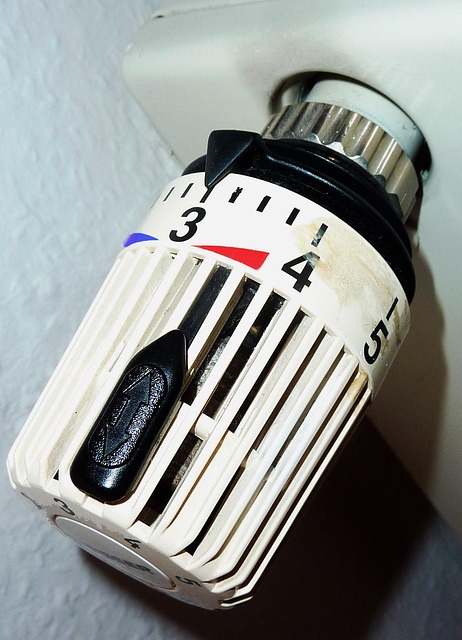Upgrade Your Comfort – Discover Efficient Heating Systems
Modern heating systems have evolved dramatically, offering homeowners unprecedented efficiency and comfort options. Whether you're considering a traditional boiler, compact combi unit, or advanced steam system, understanding your choices can significantly impact both your comfort levels and energy bills. Today's heating solutions combine cutting-edge technology with practical design, ensuring reliable warmth whilst reducing environmental impact and operational costs.

What Are the Main Types of Residential Heating Systems?
Residential heating systems primarily fall into several categories, each designed for specific home requirements and usage patterns. Conventional boilers work with separate hot water cylinders and cold water tanks, making them ideal for larger homes with multiple bathrooms. Combi boilers combine central heating and hot water provision in one compact unit, perfect for smaller properties with limited space.
System boilers offer a middle ground, requiring a cylinder but no cold water tank, whilst steam boilers utilise pressurised steam circulation for heating. Heat-only boilers, also called regular or conventional boilers, remain popular in older properties with existing heating infrastructure.
How Do Combi Boilers Compare to Traditional Systems?
Combi boilers have gained tremendous popularity due to their space-saving design and instant hot water delivery. Unlike traditional systems, they don’t require separate water tanks or cylinders, freeing up valuable storage space. However, their hot water output is limited to one outlet at a time, making them less suitable for homes with high simultaneous water demand.
Traditional systems excel in larger properties where multiple taps and showers operate simultaneously. They also work well with solar thermal systems and provide backup hot water storage. The choice between these systems largely depends on your household size, water usage patterns, and available installation space.
Which Heating System Offers the Best Energy Efficiency?
Modern condensing boilers achieve efficiency ratings of 90% or higher, significantly outperforming older non-condensing models. These units capture heat from waste gases that would otherwise escape through the flue, redirecting this energy back into the heating system.
High-efficiency systems feature advanced controls, weather compensation, and modulating burners that adjust output based on heating demand. Smart thermostats and zoning controls further enhance efficiency by heating only occupied areas when needed. Regular maintenance, proper insulation, and correctly sized systems are crucial factors in achieving optimal efficiency ratings.
What Factors Influence Boiler Installation Requirements?
Several critical factors determine installation requirements and complexity. Property size, existing pipework, gas supply capacity, and flue positioning all impact installation procedures. Older properties may require upgrades to gas supplies or electrical systems to accommodate modern boilers.
Building regulations mandate specific clearances, ventilation requirements, and safety features for different boiler types. Professional assessment ensures compliance with current standards whilst identifying potential challenges before installation begins. Factors like accessibility, structural considerations, and integration with existing heating controls also influence installation complexity and duration.
How Do UK Building Regulations Affect Heating System Choices?
UK Building Regulations Part L sets strict efficiency standards for new heating installations, requiring minimum SEDBUK ratings and specific control systems. All new boiler installations must include weather compensation controls, room thermostats, and thermostatic radiator valves where applicable.
Gas Safe registration is mandatory for all gas appliance installations, whilst electrical work may require certified electricians. Planning permission isn’t typically required for boiler replacements, but external flue positioning and condenser discharge must comply with neighbour consideration rules. Regular inspections and commissioning certificates ensure installations meet regulatory standards and warranty requirements.
What Are Current Residential Boiler Prices and Market Options?
The UK heating market offers diverse options across various price points, with costs varying significantly based on system type, efficiency ratings, and installation complexity. Leading manufacturers provide comprehensive ranges suitable for different property requirements and budgets.
| Boiler Type | Typical Price Range | Key Features | Installation Complexity |
|---|---|---|---|
| Combi Boiler | £800 - £3,500 | Space-saving, instant hot water | Moderate |
| System Boiler | £900 - £2,800 | Cylinder required, multiple outlets | High |
| Conventional Boiler | £1,000 - £2,500 | Separate tanks, high capacity | High |
| Steam Boiler | £2,000 - £8,000 | Industrial-grade, specialised use | Very High |
Installation costs typically add £500-£2,000 depending on complexity, with additional expenses for system upgrades, pipework modifications, or structural changes. Premium brands command higher prices but often include extended warranties and advanced features.
Prices, rates, or cost estimates mentioned in this article are based on the latest available information but may change over time. Independent research is advised before making financial decisions.
Modern heating systems represent substantial investments in home comfort and energy efficiency. Understanding different system types, efficiency ratings, and installation requirements helps homeowners make informed decisions aligned with their specific needs and budgets. Professional consultation ensures optimal system selection whilst compliance with current regulations guarantees safe, efficient operation for years to come.




